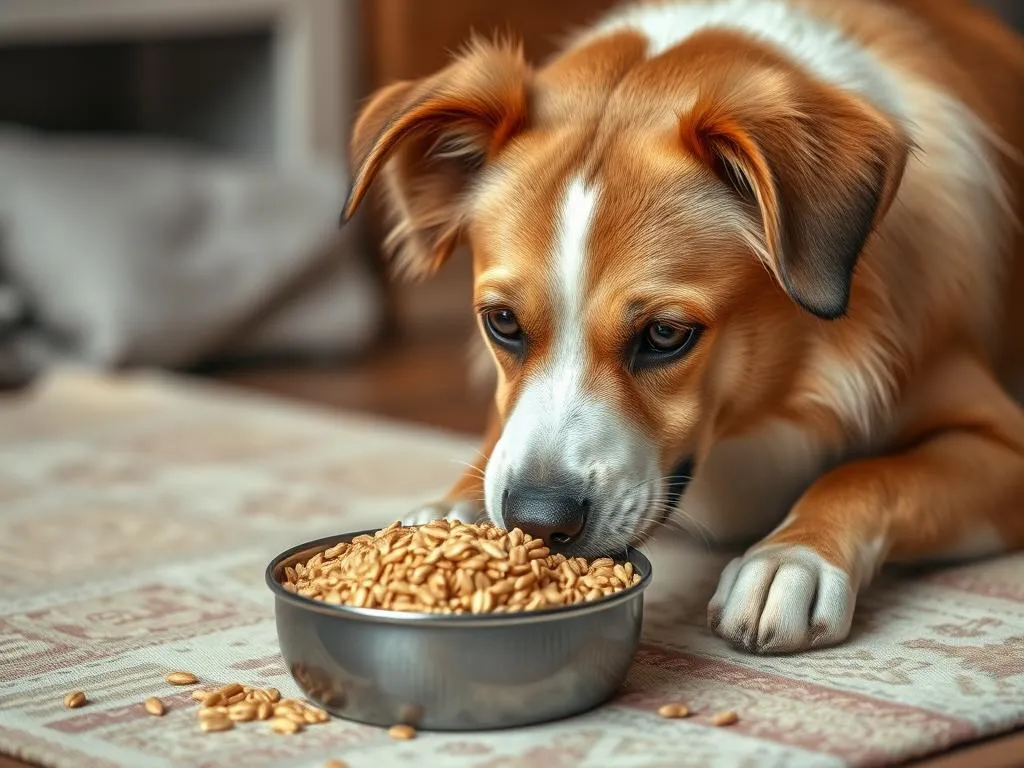
When it comes to dog nutrition, a common question many pet owners ask is, “Can dogs eat brown rice?” Understanding what constitutes a proper diet for our furry companions is crucial for their long-term health and happiness. Dogs, like humans, require a balanced diet that meets their unique nutritional needs. Proper nutrition not only supports their physical health but also contributes to their energy levels, coat condition, and overall well-being.
This article will delve into the topic of brown rice and its suitability for dogs, while also exploring other essential aspects of dog nutrition.
Understanding Dog Nutrition
Basic Nutritional Needs of Dogs
Dogs require a balanced diet that includes three primary macronutrients: proteins, carbohydrates, and fats.
- Proteins are essential for growth, maintenance, and repair of tissues. They are made up of amino acids, some of which are vital and must come from food.
- Carbohydrates provide the energy dogs need for their daily activities. While dogs can produce glucose from proteins and fats, carbohydrates are a quick and efficient source of energy.
- Fats are concentrated energy sources and play a vital role in healthy skin and coat, as well as aiding in the absorption of fat-soluble vitamins.
In addition to macronutrients, micronutrients such as vitamins and minerals are crucial for various bodily functions. Ingredients like fruits and vegetables can help ensure dogs receive these vital nutrients.
Common Misconceptions About Dog Diets
There are many myths surrounding dog diets, particularly concerning the inclusion of grains. A common misconception is that all grains are harmful to dogs. In reality, grains can be a beneficial part of a dog’s diet when properly processed and prepared.
Understanding the role of grains in dog diets can help dispel these myths. Grains are not inherently bad; they can provide necessary carbohydrates and fiber that contribute to digestive health.
How Dog Nutritional Needs Change with Life Stages
As dogs age, their nutritional requirements may change:
- Puppies have higher protein and calorie needs to support their rapid growth.
- Adult dogs require a balanced diet that maintains their health without leading to obesity.
- Senior dogs often benefit from diets lower in calories and higher in fiber to support digestive health and prevent weight gain.
The Role of Grains in Dog Diets
Are Grains Beneficial for Dogs?
Grains can serve several beneficial purposes in a dog’s diet. They provide energy through carbohydrates, aid in digestion with fiber, and can be a source of essential vitamins and minerals. Many veterinarians and pet nutritionists advocate for a balanced diet that includes grains, as they can help maintain optimal health.
Common Grains Used in Dog Foods
Several grains are commonly used in commercial dog foods:
- Brown Rice: A whole grain that is easy to digest and high in fiber.
- Oats: Another digestible grain that provides energy and is high in soluble fiber.
- Barley: Rich in fiber and helps with digestion, though it may be less digestible for some dogs.
While each grain has its benefits, it’s essential to monitor how your dog reacts to different ingredients to ensure they are well-tolerated.
Debunking Grain-Free Diet Myths
The rise of grain-free diets has sparked a debate in the pet nutrition community. While some dogs may have sensitivities to certain grains, a completely grain-free diet isn’t necessary for all dogs. Research has suggested potential health risks associated with grain-free diets, including heart disease linked to certain formulations.
It’s crucial to approach dietary changes thoughtfully and to understand that grains can be a healthy part of a dog’s diet.
Can Dogs Eat Brown Rice?
Nutritional Profile of Brown Rice
Brown rice is often considered a nutritious option for dogs. Its nutritional profile includes:
- Fiber: Essential for promoting healthy digestion.
- Vitamins: Such as B vitamins, which support energy metabolism.
- Minerals: Including magnesium and phosphorus, important for bone health.
Health Benefits of Brown Rice for Dogs
Including brown rice in your dog’s diet can offer several health benefits:
- Digestive Health: The high fiber content in brown rice aids in digestion and can help prevent constipation.
- Energy Source: Brown rice is a complex carbohydrate, providing a steady source of energy for active dogs.
- Weight Management: Being lower in calories compared to other carbohydrate sources, brown rice can be beneficial for dogs that need to maintain a healthy weight.
Potential Risks and Considerations
While brown rice can be beneficial, there are some risks to consider:
- Allergies: Although rare, some dogs can be allergic to rice. Signs may include itching, digestive upset, or skin issues.
- Portion Control: It’s essential to feed brown rice in moderation, as too much can lead to obesity.
- Cooking Methods: Always cook brown rice thoroughly before serving it to dogs. Uncooked rice is hard for dogs to digest and can lead to gastrointestinal issues.
How to Introduce Brown Rice into Your Dog’s Diet
Preparing Brown Rice for Dogs
Cooking brown rice is straightforward:
- Rinse the rice: Remove excess starch by rinsing it under cold water.
- Cook: Use a ratio of 1 part brown rice to 2 parts water. Bring to a boil, then reduce heat and simmer for about 45 minutes until tender.
- Cool: Allow the rice to cool before serving it to your dog.
Mixing brown rice with your dog’s regular food can help ease them into this new addition. Start with small amounts and gradually increase the portion over several days.
Monitoring Your Dog’s Response
When introducing brown rice, watch for signs of a positive response, such as increased energy levels and improved digestion. Conversely, if your dog experiences vomiting, diarrhea, or any signs of allergic reactions, discontinue feeding brown rice and consult your veterinarian.
Consulting Your Veterinarian
Before making significant changes to your dog’s diet, it’s wise to consult your veterinarian. They can provide tailored advice based on your dog’s age, weight, activity level, and overall health. This personalized approach ensures you are meeting your dog’s specific nutritional needs.
Other Healthy Food Options for Dogs
Alternative Grains for Dogs
In addition to brown rice, there are several other healthy grain options:
- Quinoa: A protein-rich grain that is also gluten-free.
- Barley: Offers high fiber content and can support digestion.
- Oats: Great for dogs with sensitive stomachs, providing soluble fiber.
Vegetables and Fruits Safe for Dogs
Incorporating vegetables and fruits into your dog’s diet can provide additional nutrients:
- Carrots: High in fiber and vitamin A, they can promote good vision and skin health.
- Green Beans: Low in calories and high in fiber, making them a great snack.
- Blueberries: Packed with antioxidants, they can support overall health.
- Apples: A good source of vitamins A and C, just be sure to remove the seeds and core.
Homemade Dog Food Recipes
Making homemade dog food can be rewarding and allows you to control the ingredients. Here’s a simple recipe that includes brown rice:
Brown Rice and Chicken Bowl
– 1 cup brown rice
– 1 pound ground chicken
– 1 cup chopped carrots
– 1 cup green beans
- Cook the brown rice according to the instructions above.
- In a separate pan, cook the ground chicken until fully cooked.
- Steam the carrots and green beans until tender.
- Mix all ingredients together and allow to cool before serving.
This recipe provides a balanced meal packed with nutrients.
Conclusion
Balanced nutrition is essential for maintaining your dog’s health and happiness. Brown rice can be a valuable addition to your dog’s diet, providing energy, fiber, and essential nutrients. However, it’s important to remember that every dog is unique, and what works for one may not work for another. Exploring various healthy options and consulting with professionals will help you make the best dietary choices for your furry friend. By ensuring your dog receives a well-rounded diet, you are paving the way for a long and healthy life together.









